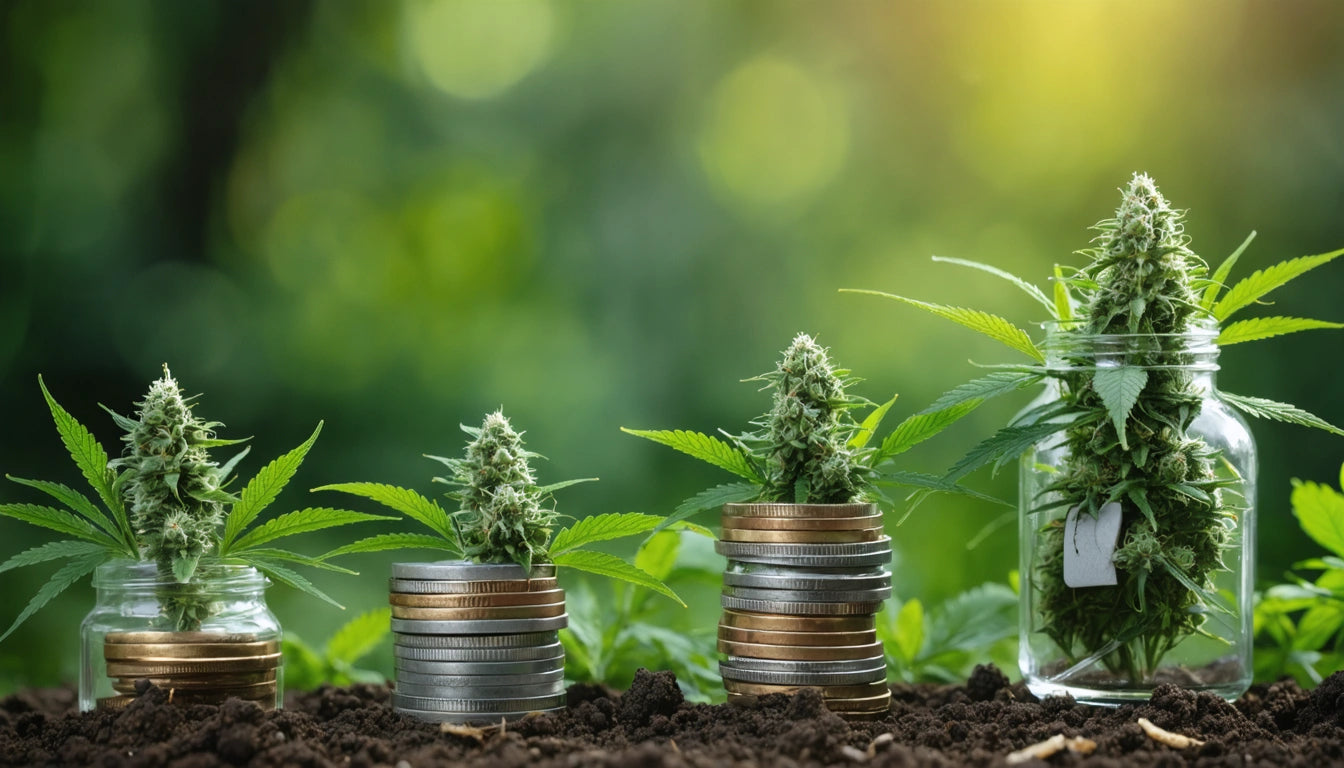The Economic and Social Benefits of Legalizing Weed
The conversation around cannabis legalization has evolved significantly in recent years, with increasing focus on the substantial economic and social benefits of legalizing weed. As more states and countries implement legal frameworks for both medical and recreational use, the positive impacts are becoming increasingly evident through data and real-world examples.
Economic Impact of Cannabis Legalization
The economic benefits of legalizing cannabis extend far beyond simple tax collection. Legal markets create regulated industries that generate revenue through multiple channels while reducing costs associated with prohibition.
According to recent economic analyses, states with legal cannabis markets have experienced significant economic growth. Colorado, one of the first states to legalize recreational use, has generated over $1.5 billion in tax revenue since 2014. This demonstrates the substantial economic benefits of weed legalization when implemented with proper regulatory frameworks.
The cannabis industry also stimulates adjacent sectors including agriculture, manufacturing, retail, and professional services. As businesses develop specialized packaging solutions for cannabis products, the economic ripple effect extends throughout the supply chain, creating additional revenue streams and business opportunities.
Tax Revenue Generation and Allocation
One of the most compelling benefits of legalizing weed for the economy is the generation of tax revenue that can be allocated to public services. States with legal cannabis markets typically earmark these funds for:
- Education and school construction
- Public health initiatives
- Substance abuse prevention and treatment
- Infrastructure improvements
- Law enforcement and public safety
For example, economic research on cannabis legalization shows that many states allocate a percentage of tax revenue to education, with some dedicating funds specifically to early childhood education programs.
Job Creation and Industry Growth
The benefits of cannabis legalization extend to employment opportunities across various skill levels. The legal cannabis industry has become one of the fastest-growing job sectors in states with regulated markets.
Jobs created by the cannabis industry include:
- Cultivation specialists and agricultural workers
- Processing and manufacturing positions
- Retail staff and budtenders
- Logistics and transportation roles
- Compliance and testing professionals
- Marketing, legal, and administrative positions
These employment opportunities represent significant economic benefits from legalizing weed, particularly in regions previously affected by industrial decline or high unemployment rates.
Industry Innovation and Investment
Beyond direct job creation, legalization has spurred innovation and attracted investment capital. New technologies for cultivation, processing, and product development continue to emerge, creating additional economic growth opportunities.
Criminal Justice System Savings
The benefits of legalized weed include significant cost savings within the criminal justice system. Prohibition enforcement requires substantial resources for policing, court proceedings, and incarceration. Studies on cannabis legalization indicate that states save millions annually by reducing cannabis-related arrests and prosecutions.
These savings represent an often overlooked aspect of the economic benefits to legalizing weed. Resources previously allocated to cannabis enforcement can be redirected to address more serious crimes and public safety concerns.
Social Equity and Community Benefits
Beyond pure economics, the benefits of legalizing cannabis include addressing historical inequities in enforcement. Communities disproportionately affected by prohibition have opportunities for economic participation through social equity programs.
Many states now include provisions for:
- Expungement of prior cannabis convictions
- Reduced barriers to industry entry for affected individuals
- Community reinvestment using tax revenue
- Targeted economic development in impacted areas
These social equity components represent important benefits of weed legalization that extend beyond direct economic measures to address systemic issues.
Public Health Considerations
The benefits of legalizing cannabis also include public health improvements through regulated production and testing requirements. Legal markets ensure products meet safety standards for contaminants and accurate potency labeling.
Additionally, research on medicinal cannabis continues to identify therapeutic applications for various conditions. Legal frameworks facilitate this research while providing patients with safe access to tested products.
Regulated markets also implement age restrictions and public education campaigns that may reduce youth access and promote responsible adult use, addressing public health concerns more effectively than prohibition approaches.
Future Economic Potential of Legal Cannabis
As the industry matures, the economic benefits of legalizing weed will likely continue to expand. Emerging opportunities include:
- Interstate commerce (once federally permitted)
- International export markets
- Pharmaceutical developments
- Industrial applications for hemp
- Tourism and hospitality integration
The benefits of legalising weed extend to long-term economic development potential that remains partially untapped due to current regulatory limitations. As these barriers decrease, additional economic growth can be expected.
While debates about legalization continue, the economic and social evidence increasingly supports the benefits of regulated cannabis markets. With thoughtful implementation focused on public health, safety, and equity, cannabis legalization offers substantial economic advantages while addressing historical injustices associated with prohibition.











Leave a comment
All comments are moderated before being published.
This site is protected by hCaptcha and the hCaptcha Privacy Policy and Terms of Service apply.